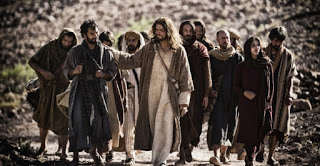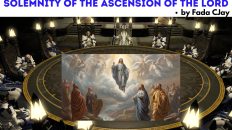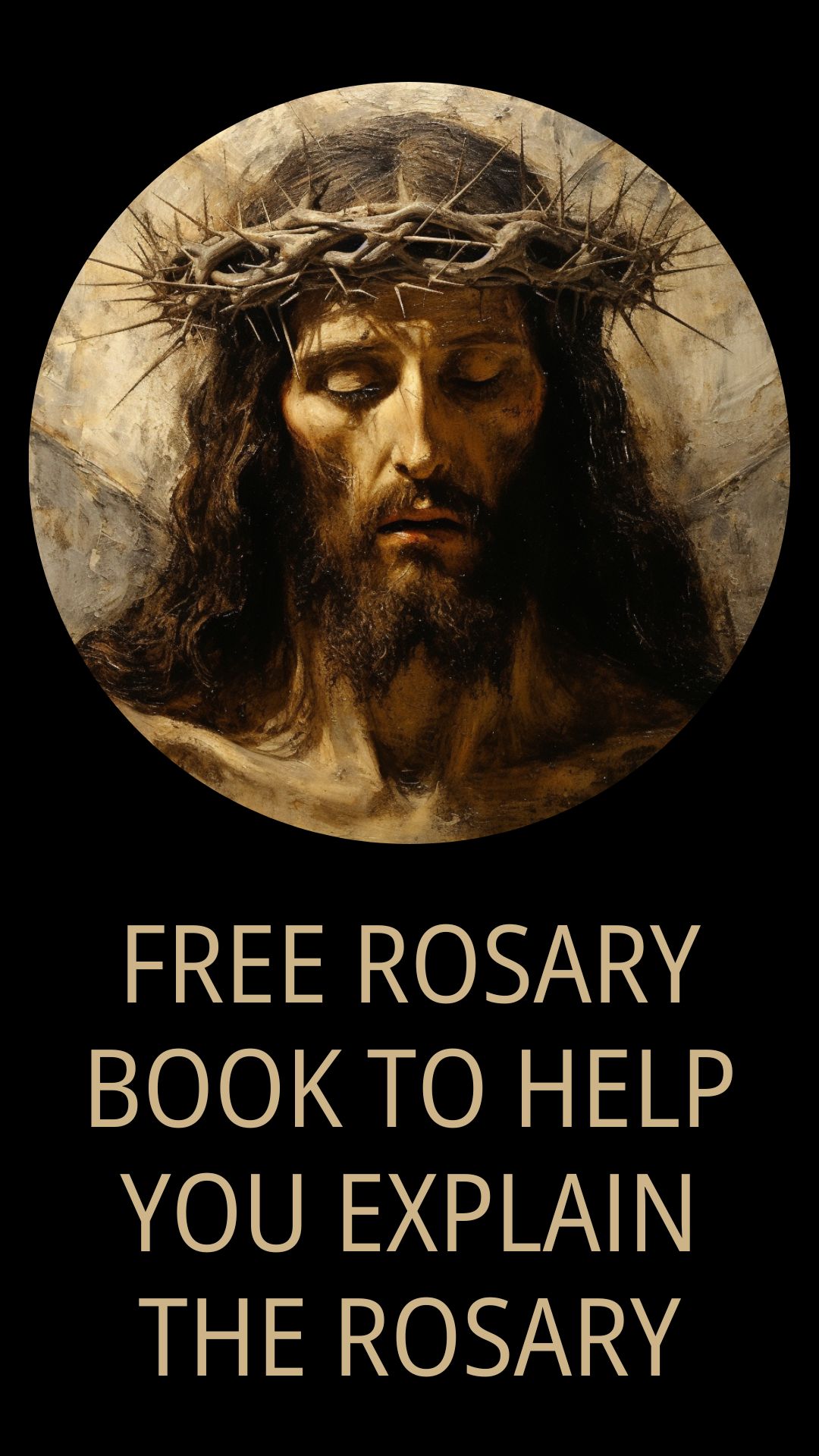SUNDAY
REFLECTION:
REFLECTION:
FREEDOM IN
CHRIST WHO CALLS US
CHRIST WHO CALLS US
(To truly follow Jesus Christ, we must freely consider
the cost and put Him above everything else)
the cost and put Him above everything else)
Salvation is both absolutely
free and yet it costs you your very life. You receive it “freely” at no expense
to you, but once you receive it, you have just committed everything you are and
have to Jesus Christ. Here comes a paradox: How can something be both free and
costly at the same time?” Discipleship
is costly. The Scripture is very clear; to be a disciple in the real sense of
the term means that a person must pay a price. There is no view of discipleship
which would disagree with this conclusion. However, the disagreement comes over
whether the conditions for costly discipleship are also conditions for salvation.
If the conditions of discipleship are also conditions of salvation, then every
Christian is, by definition, a disciple; and salvation, by definition, is
costly. If these conditions are not conditions for salvation, then the issue of
discipleship must be distinguished from the issue of salvation so that
discipleship is truly costly and salvation, truly free. We would understand
this better as we journey through the readings.
free and yet it costs you your very life. You receive it “freely” at no expense
to you, but once you receive it, you have just committed everything you are and
have to Jesus Christ. Here comes a paradox: How can something be both free and
costly at the same time?” Discipleship
is costly. The Scripture is very clear; to be a disciple in the real sense of
the term means that a person must pay a price. There is no view of discipleship
which would disagree with this conclusion. However, the disagreement comes over
whether the conditions for costly discipleship are also conditions for salvation.
If the conditions of discipleship are also conditions of salvation, then every
Christian is, by definition, a disciple; and salvation, by definition, is
costly. If these conditions are not conditions for salvation, then the issue of
discipleship must be distinguished from the issue of salvation so that
discipleship is truly costly and salvation, truly free. We would understand
this better as we journey through the readings.
Today’s
readings spark an apparent tension: full commitment (OT and Gospel) and full
freedom (St Paul). The Gospel is stark: choices have to be made, sometimes
against what seems quite natural and even sacred. On the other hand, there is
Paul’s clarion call to freedom: for freedom Christ has set us free. For
Paul, of course, this freedom is the higher freedom
experienced by those full engaged with Christ, who has somehow capture them. It
is, therefore, paradoxical. As a result, the tension between the other readings
and Paul is only apparent. Both demand a discipleship costing not less than everything and, precisely in that “costing not
less than everything”, there is the truest freedom. This we clearly see in the
gospel. However, before taking into considerations, the reality of the gospel
according to Luke, let us take a look at the background of the Luke’s gospel
and its beneficiaries.
readings spark an apparent tension: full commitment (OT and Gospel) and full
freedom (St Paul). The Gospel is stark: choices have to be made, sometimes
against what seems quite natural and even sacred. On the other hand, there is
Paul’s clarion call to freedom: for freedom Christ has set us free. For
Paul, of course, this freedom is the higher freedom
experienced by those full engaged with Christ, who has somehow capture them. It
is, therefore, paradoxical. As a result, the tension between the other readings
and Paul is only apparent. Both demand a discipleship costing not less than everything and, precisely in that “costing not
less than everything”, there is the truest freedom. This we clearly see in the
gospel. However, before taking into considerations, the reality of the gospel
according to Luke, let us take a look at the background of the Luke’s gospel
and its beneficiaries.
A
critical study shows that the beneficiaries of the Gospel of Luke are the
sinners, the poor, the abandoned, the Samaritans, widows, orphans, etc. This we
clearly see in Luke 4: 18-19, with the preaching of his mission in the
synagogue, Christ said. “The Spirit of the Lord is upon me, because He has
anointed me to preach good news to the poor He has sent me to proclaim release
to the captives, and recovering of sight to the blind, to set free the oppressed.
In the gospel reading, Christ called some certain individuals and they gave
excuses which do not meet up with the cost of discipleship. However, the
interesting point is that these excuses were made in freedom. Even though
Christ expects a free answer, it also requires a more radical attitude; not to
say goodbye to the family (which seems contrary to Elisha’s attitude in the
first reading), not even to bury one’s father etc. However, we are not meant to
take those words literally. The interpretation implies that the prospective
disciple must be ready and willing to “deny himself, take up his cross
daily and follow him” (Luke 9:23). This is indeed the “cost” of following
Christ, and it applies to all, thus, it is a condition for salvation: “No one who puts hand to the plow and looks back
is fit for the kingdom of God.” (Lk. 9:62). In
this light, we fix our minds to the things that are “above”, and not to
“worldly” things. Remember that Christ once said: “how hard it is for a rich
man to enter the kingdom of God…” (cf. Mtt. 19:24). This is because there is
the temptation on the part of the rich man to focus on his wealth and lose
focus on his commitment to Christ (things that are above). In the same gospel, we see the rejection of
Christ by the Samaritans. Let us remember that Luke addressed his Gospel to
Theophilus. Theophilus, from the Greek word means “friend of God.” In
the same vein, from a theological dimension, the Gospel of Luke is addressed to
“us” who are friends of God (the poor, the abandoned, the Samaritan,
etc). Hence, we are the poor, the abandoned, the Samaritans, etc. seeking
freedom. The reaction of the Samaritans to refuse Jesus and his disciples is
largely consistent with the traditional mutual hostility between the Samaritans
and the Jews. However, this should not be our attitude as “Samaritans”. Christ came
for our purpose, and calls us to his holy service. The onus lies on our part to
accept this call positively in freedom, bearing in mind its cost.
critical study shows that the beneficiaries of the Gospel of Luke are the
sinners, the poor, the abandoned, the Samaritans, widows, orphans, etc. This we
clearly see in Luke 4: 18-19, with the preaching of his mission in the
synagogue, Christ said. “The Spirit of the Lord is upon me, because He has
anointed me to preach good news to the poor He has sent me to proclaim release
to the captives, and recovering of sight to the blind, to set free the oppressed.
In the gospel reading, Christ called some certain individuals and they gave
excuses which do not meet up with the cost of discipleship. However, the
interesting point is that these excuses were made in freedom. Even though
Christ expects a free answer, it also requires a more radical attitude; not to
say goodbye to the family (which seems contrary to Elisha’s attitude in the
first reading), not even to bury one’s father etc. However, we are not meant to
take those words literally. The interpretation implies that the prospective
disciple must be ready and willing to “deny himself, take up his cross
daily and follow him” (Luke 9:23). This is indeed the “cost” of following
Christ, and it applies to all, thus, it is a condition for salvation: “No one who puts hand to the plow and looks back
is fit for the kingdom of God.” (Lk. 9:62). In
this light, we fix our minds to the things that are “above”, and not to
“worldly” things. Remember that Christ once said: “how hard it is for a rich
man to enter the kingdom of God…” (cf. Mtt. 19:24). This is because there is
the temptation on the part of the rich man to focus on his wealth and lose
focus on his commitment to Christ (things that are above). In the same gospel, we see the rejection of
Christ by the Samaritans. Let us remember that Luke addressed his Gospel to
Theophilus. Theophilus, from the Greek word means “friend of God.” In
the same vein, from a theological dimension, the Gospel of Luke is addressed to
“us” who are friends of God (the poor, the abandoned, the Samaritan,
etc). Hence, we are the poor, the abandoned, the Samaritans, etc. seeking
freedom. The reaction of the Samaritans to refuse Jesus and his disciples is
largely consistent with the traditional mutual hostility between the Samaritans
and the Jews. However, this should not be our attitude as “Samaritans”. Christ came
for our purpose, and calls us to his holy service. The onus lies on our part to
accept this call positively in freedom, bearing in mind its cost.
The
freedom in accepting the call of being a “disciple” is not farfetched from the
second reading. Paul made it very explicit. He says: “For you were called for freedom, brothers and
sisters. But do not use this freedom as an
opportunity for the flesh; rather, serve one another through love. For the
whole law is fulfilled in one statement, namely, you shall love your neighbor as
yourself…”
freedom in accepting the call of being a “disciple” is not farfetched from the
second reading. Paul made it very explicit. He says: “For you were called for freedom, brothers and
sisters. But do not use this freedom as an
opportunity for the flesh; rather, serve one another through love. For the
whole law is fulfilled in one statement, namely, you shall love your neighbor as
yourself…”
In
fact, Jesus not only freed us, but he hopes that whoever wants to follow him to
act in a spirit of freedom to choose and make a free decision in such a serious
condition.
fact, Jesus not only freed us, but he hopes that whoever wants to follow him to
act in a spirit of freedom to choose and make a free decision in such a serious
condition.
The
message of today is very challenging. How can we understand our vocation as
Christians and as members of the Church with a specific “calling”? Do
we feel invited to live the freedom of God’s children, or simply to perform
certain functions, submit our lives to a number of rules, regulations and
routines? Hence, we are called to pray for those who feel called to a
particular ministry or vocation in the Church: they may respond in freedom and
in joyful obedience to Jesus’ invitation. Let us also pray for ourselves; the
Spirit of the Lord can help us to live in an attitude of “mutual service
in love” and also for perseverance in our freely chosen vocations.
message of today is very challenging. How can we understand our vocation as
Christians and as members of the Church with a specific “calling”? Do
we feel invited to live the freedom of God’s children, or simply to perform
certain functions, submit our lives to a number of rules, regulations and
routines? Hence, we are called to pray for those who feel called to a
particular ministry or vocation in the Church: they may respond in freedom and
in joyful obedience to Jesus’ invitation. Let us also pray for ourselves; the
Spirit of the Lord can help us to live in an attitude of “mutual service
in love” and also for perseverance in our freely chosen vocations.
As laities,
priests or religious, we all received a fundamental vocation to live in the
freedom of God’s children. The
apostles abandoned the security of an established lifestyle in order to be with
Jesus. The same with Elisha in the first reading. The fact is that Jesus’ call
conveys a great sense of urgency. There is no time to haggle
over terms and conditions. Consent must be unconditional. We have to say a
total ‘Yes,’ like Mary, our Blessed Mother. If we do that we can experience the
fierce, inner joy of the Spirit and a sense of belonging to God. Thus, like the
psalmist, we express: “You are my inheritance, O Lord…”
priests or religious, we all received a fundamental vocation to live in the
freedom of God’s children. The
apostles abandoned the security of an established lifestyle in order to be with
Jesus. The same with Elisha in the first reading. The fact is that Jesus’ call
conveys a great sense of urgency. There is no time to haggle
over terms and conditions. Consent must be unconditional. We have to say a
total ‘Yes,’ like Mary, our Blessed Mother. If we do that we can experience the
fierce, inner joy of the Spirit and a sense of belonging to God. Thus, like the
psalmist, we express: “You are my inheritance, O Lord…”
May
the Holy Spirit assist us in our weakness, and place in our minds the
priorities of true discipleship, and grant us the grace to live out our
Christian values, summiting ourselves freely to the will of Christ who calls us.
Amen.
the Holy Spirit assist us in our weakness, and place in our minds the
priorities of true discipleship, and grant us the grace to live out our
Christian values, summiting ourselves freely to the will of Christ who calls us.
Amen.
Happy
13th Sunday in Ordinary Time, Year C!
13th Sunday in Ordinary Time, Year C!
Shalom!




